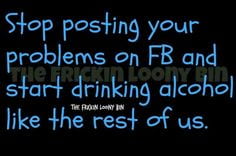COVID-19 has brought many new changes in women’s lives. Due to the pandemic, many have lost their jobs and there was economic downturn. Research suggest that COVID-19 has negatively impacted women’s mental health such as increased depression, distress, low self-esteem, and anxiety. Additionally, it also led to excessive consumption of alcohol and drugs. (8)
According to a report there was a 50 % increase in alcohol sales and home delivery of alcohol also drastically increased about 300 % in March compared to January 2020. (3) People were stocking beforehand for social distancing. Some of the reason’s women are using alcohol during the pandemic is to treat their stress, worries, fears, anxiety, and depression. (1) Stress and anxiety are usually caused when they are locked in the house due to self-isolation, helping kids to finish up their school assignments, stress of loneliness, stress about job layoffs, stress with their newborn child, or fear of sleepless nights.
Source: https://sites.gsu.edu/whyshedrinks/2019/06/21/i-promise-not-to-drunk-dial-you-alcohol-you-later/
Especially, with the ongoing threat of coronavirus, women feel worried, anxious, and stressed for themselves or their loved ones. It is human nature that we all worry that something may happen to us. And when faced with unknown situations and circumstances we go through fear and doubts which may lead to self-medication. And some women choose alcohol as self-medication to calm their anxieties. (4)
Due to social distancing, it has become highly impossible for people to meet at the bars to socialize and drink. Another means of socializing these days is through social network sites. People are using social network as a way of expressing and communicating with each other.
https://www.pinterest.com/pin/416301559281337304/
Memes like these are widely spreading over the internet to encourage people in consumption of alcohol. There is a high possibility that memes are convincing women to consume alcohol during the COVID-19.
So, what are some ways to cope with stress during COVID-19?
CDC listed several ways to cope with stress during COVID-19. Firstly, they suggest that one must avoid alcohol and drugs. They also suggest taking breaks from listening to news stories, reading, or watching information about pandemic can help reduce stress because hearing stuff about COVID-19 repeatedly can affect a person’s mental health. Making connections with others such as talking with people who you trust will reduce one’s stress. Trying to do other activities that you enjoy can also calm a person’s anxiety. Additionally, they suggest it is important to take care of one’s body, such as mediation, taking deep breaths, stretch, eat healthy, well-balanced meals, exercise regularly, get sufficient sleep at nights.(5)
Meditation can improve woman’s mind and reduce stress.(6) According to National Center for Complementary and Integrative Health, many studies suggest that meditation can be helpful in number of conditions which includes, pain, psychological disorder, and high blood pressure. In general, mediation is a practice of mind and body. It increases calmness and relaxation to state of mind and body. (7) Mediation can be a powerful tool in treating women with anger, anxiety, depression, and stress. (6) Mediation practice during COVID-19 can be helpful in fighting stress. Based on the results 2014 study, mediation helped improve anxiety and depression of 3,515 participants. (7)
References:
(1) Abbey, A., Smith, M. J., & Scott, R. O. (1993). The relationship between reasons for drinking alcohol and alcohol consumption: An interactional approach. Addictive behaviors, 18(6), 659. https://pubmed.ncbi.nlm.nih.gov/8178704/
(2) “Pin by T. Dubs on Memes – Alcohol: Alcoholic Drinks, Neon Signs.” Pinterest, www.pinterest.com/pin/416301559281337304/.
(3) “Stress Drinking: Alcohol Consumption Increases During COVID-19.” University of Utah Health, https://healthcare.utah.edu/the-scope/shows.php?shows=0_p0xim6x3
(4) “Coronavirus (COVID-19) & Alcoholism.” Alcohol.org, www.alcohol.org/resources/coronavirus-and-alcoholism/.
(5) “Mental Health and Coping During COVID-19.” Centers for Disease Control and Prevention, Centers for Disease Control and Prevention, 30 Apr. 2020, www.cdc.gov/coronavirus/2019-ncov/daily-life-coping/managing-stress-anxiety.html.
(6) “Meditation Helps The Woman’s Mind: Less Stress, Anxiety, Addiction.” EOC Institute, eocinstitute.org/meditation/meditation-benefits-for-women/.
(7) “Meditation: In Depth.” National Center for Complementary and Integrative Health, U.S. Department of Health and Human Services, www.nccih.nih.gov/health/meditation-in-depth.
(8) Panchal, Nirmita, et al. “The Implications of COVID-19 for Mental Health and Substance Use.” KFF, 21 Apr. 2020, www.kff.org/coronavirus-covid-19/issue-brief/the-implications-of-covid-19-for-mental-health-and-substance-use/.




Nice post. I have been doing some of those recommendations to cope through stress during this pandemic. Mediation is a good route to relieve stress and focus on self-reflection, to feel a sense of calmness and healing.
Great coping mechanisms! I know that yoga and any physical activities can also help relieve stress and anxiety. My work has an Employee Engagement Committee that I co-chair. we have really integrated “fun” non-alcoholic activities such as puzzles, colouring, basically anything that helps you relieve stress at home. My colleagues really enjoy it and they even have their families join in on the virtual sessions! They’ve said it’s something outside of their normal routine but its makes them laugh and feels like a weight is lifted of them. With COVID-19, stress and anxiety is going to increase and any non-alcoholic coping mechanisms would be great to reduce alcohol consumption.